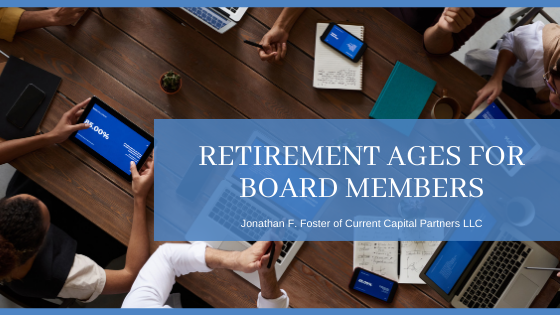Although the United States generally does not mandate retirement at a certain age, specific industries and occupations have such requirements, including for airline pilots. Statistics show that 63% of workers retire between the ages of 57 and 66, with 62 as the minimum age to collect social security. For boards, older directors are often more experienced and can be valuable assets if they remain engaged. However, some boards have discussed retirement age’s value to refresh the board and bring in new talent.
As previously noted in my piece on term limits, it is important to refresh boards, but a retirement age is not the most effective way to do so. A long-term board’s institutional memory can add to its effectiveness and credibility.
I believe that a far preferable alternative to term limits is a detailed annual assessment of each director and having ineffective directors step down. While there is no reason to embarrass anyone, a board appointment should not be a tenured or guaranteed position. Certainly, senior executives are similarly evaluated each year.
Experienced directors can be effective beyond the typical retirement age and well into their 70s. Longer life expectancy and easier access to information can help keep a director quite current on industry and company trends, market data and the like. However, a director whose only business interests become a few board memberships can quickly become dated. Therefore, I have reluctantly come to the view that a retirement age of 75 is generally prudent.
Of course, even with mandatory retirement, boards shouldn’t have to wait to replace directors if they do not perform well. It is not fair to the shareholders, management, and other board members to retain an ineffective director. Again, annual evaluations of individual directors are critical.
Procedures related to such evaluations should be outlined and executed by the governance committee, as noted in this prior piece. Key metrics to test for in these evaluations include attendance, commitment, relevant skills, and contributions to the board. The governance committee is also responsible for continuing education efforts to help maintain and even improve the directors’ skill sets.
Keeping a board refreshed is important, but mandatory retirement ages or term limits are not the most effective, primary ways to do so; yearly individual director evaluations are.
Jonathan F. Foster
Founder – Current Capital Partners LLC

